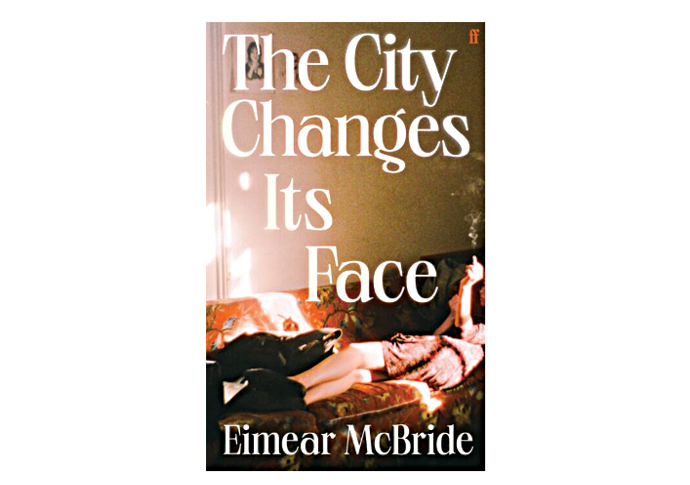Novel performance as Camden is the stage for star-crossed lovers
It’s back to NW1, ‘where we belong’, in Eimear McBride’s fourth novel, writes Conrad Landin
Friday, 13th June 2025 — By Conrad Landin

Eimear McBride and her follow-up to The Lesser Bohemians [Bjo96_CC BY-SA 4.0]
THE “act of theatre”, Chris Kraus wrote in her 2002 experimental novel Aliens & Anorexia, “really happens in the tiny gaps between the actors and their roles”.
This “friction witnessed by the audience” is in full view in The City Changes Its Face. It’s less a novel about actors as a performance in itself, reaching for fulfilment amid the sheer inadequacies of the written and spoken word.
It’s Eimear McBride’s fourth novel, and it opens two years after her second, The Lesser Bohemians, finished up. The same star-crossed lovers of that book have sauntered from Kentish Town to Camden Town, now cohabiting in a rather conventional domesticity – but their troubling age-gap and inner darknesses loom larger than ever.
Twenty-year-old Eily has retreated from drama school and barely leaves the house, and Stephen – two decades her senior – cannot get her to talk. A jar of piccalilli is thrown across the kitchen, and amid bloodstains and an unassailable stink of vinegar, picking up the pieces is a job for two.
Were this a plot-driven novel, it would hinge on the re-entry of Stephen’s daughter Grace – just a couple of years younger than Eily and the cause of considerable jealousy – who appears in London in regular narrative leaps into the recent past. Grace is very much a “she” alongside Stephen’s “you”, described only as the image of her father. When her loud rustling disturbs the protagonists’ awkward sex, it is a jolt for us too – we’ve forgotten she’s not Stephen’s to be turned off.

Yet its Eily’s narrative “we” that comes out on top, inviting us to step across time with her – once we’re over our inhibitions at experiencing generosity and derangement at once.
And McBride’s pages are turned not by plot, but instead by language and expression, through which she instils a suffocating claustrophobia into a novel of vast horizons. Eily, Stephen and Grace are constantly struggling for breath, amid a fog of cigarette smoke, a rainy Camden and the finite space of their circumstances. “The city, magnanimously, raised its weft and offered us room to turn,” McBride writes in a moment of optimism that likewise reminds us of human subjectivity.
We venture from the World’s End in Camden High Street to the Sir Richard Steele on Haverstock Hill, swerving Blustons, Owl Bookshop and the drug dealers by Camden Town tube. When the action shifts to Finsbury Park, Archway or Holloway, it’s within the confines of a stuffy cinema showing Stephen’s autobiographical film.
Presented as a screenplay far more lyrical than practical, this section is a heartbreaking portrait of addiction and wayward youth, brought to life in cold colour. As the narrative steps into role, with Stephen now its first focaliser, we see the shadow of McBride’s own theatrical training at Drama Centre London – popularly known, and not for nothing, as “Trauma Centre”.
Yet its Eily’s banal commentary on the background music, and her observation of Stephen and Grace’s body language, which rams it home.
It’s the gap between performance and performer that brings us closest to understanding what lies beneath.
Returning from a trip to St John’s Wood towards the novel’s end, Eily describes it as “lovely, but not our place”. It’s back to “Camden. Where we belong. Where what will be, still will, at least in a world of our own.”
That’s a certainty pre-shattered in the book’s very title, but a fleeting moment of recognition too. Much as we all might struggle to find the words, much as we are defined by time and place, our performances – if nothing else – remain our own.
• The City Changes Its Face. By Eimear McBride. Faber, £20